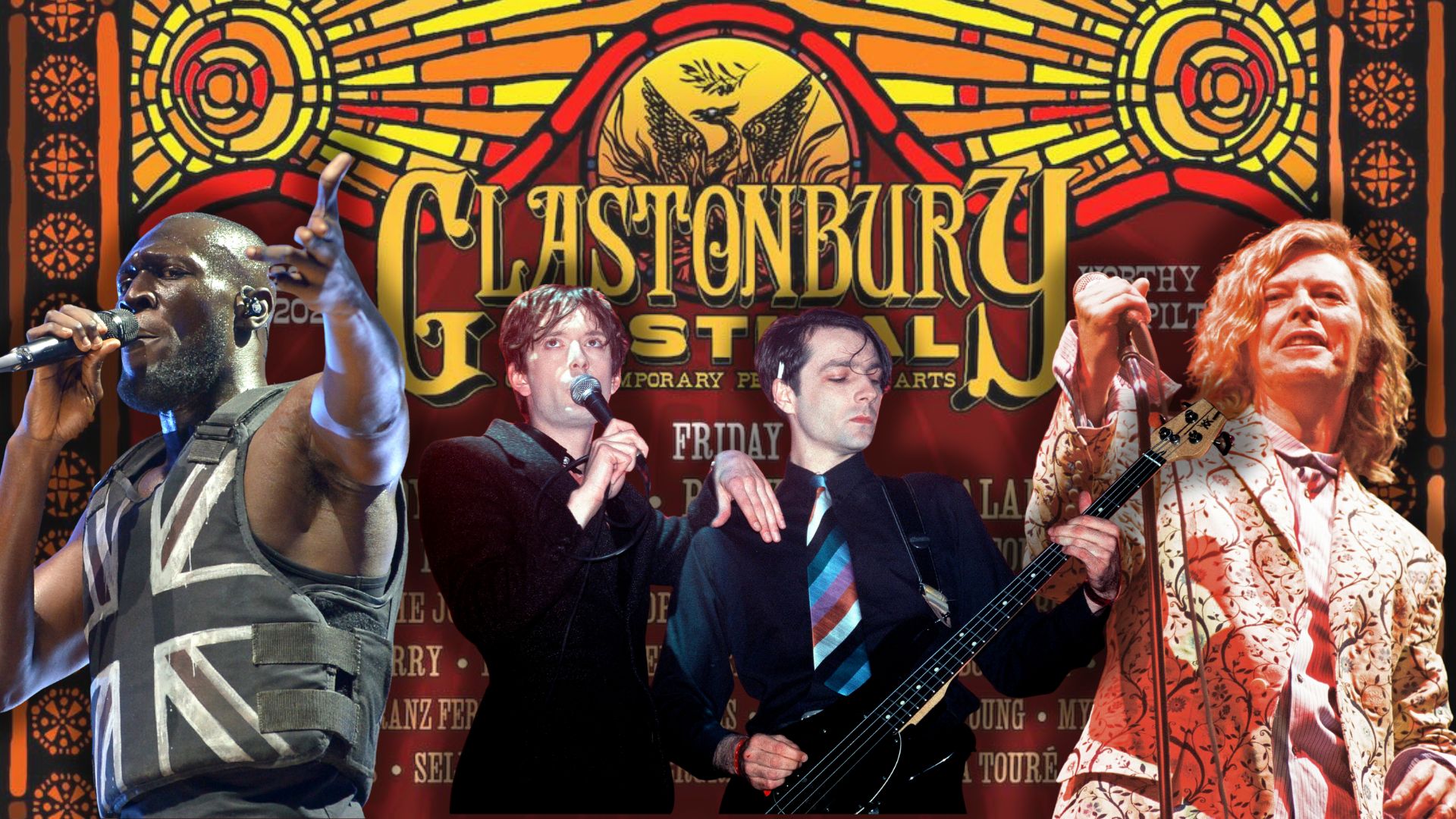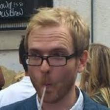
Get exclusive shortlists, celebrity interviews and the best deals on the products you care about, straight to your inbox.
You are now subscribed
Your newsletter sign-up was successful
In the lucrative, mud-stained world of live musical entertainment, there’s nothing quite like the Glastonbury Festival of Contemporary Performing Arts.
More commonly referred to as Glastonbury (or just Glasto if you’re a sozzled Brit), it’s arguably the world’s pre-eminent music festival. Hundreds of thousands of festival-goers have been returning to the Eavis family farm near Pilton, Somerset since 1970 – give or take the odd fallow year.
With the 39th Glastonbury festival less than a week away, we thought now would be a fine time to reflect on some of the amazing line-ups that have graced the stage(s) over the years.
This year’s event will see The 1975, Neil Young, Olivia Rodrigo, and Rod Stewart all taking part in this vast celebration of music and culture. But how does that compare to the very best?
While opinion will vary wildly along generational (and genre) lines, we reckon these ten line-ups are going to be particularly hard to beat – even if Oasis and Pulp were to hit us with surprise appearances next week.
This list was difficult enough to whittle down to a mere 10, so we’ve copped out of any decisive rankings, and have gone in chronological order. It’s up to you, dear reader, to decide which was the absolute best.
1971
In only its second year, the then-free-to-enter Glastonbury festival hadn’t yet reached cultural institution status. Nor indeed had one of its featured artists, David Bowie, who was forced to play at 5am on a Wednesday morning.
Get exclusive shortlists, celebrity interviews and the best deals on the products you care about, straight to your inbox.
Falling right in between his The Man Who Sold The World and Hunky Dory albums (with the latter heavily represented in the setlist), and with a young Mick Ronson on guitar, this was a precious early glimpse at a Bowie who was finally starting to find his voice. For this reason, even Pink Floyd cancelling can’t bump Glastonbury 1971 off our list.
1984
Glastonbury came to be known (for better and for worse) as an ‘indie’ festival through its ‘90s and ‘00s heyday, but you can thank the 1984 festival for this shift in focus towards jangly guitars and arch lyrics. This was when a band of upstart Mancunians called The Smiths lit up the stage a mere two years on from their formation.
The rest of the line-up wasn’t half bad either, with jazz fusion pioneers Weather Report, afrobeat trailblazer Fela Kuti, Dr John, and Joan Baez all filling out the kind of eclectic roster that today’s organisers would surely envy.
1995
For many years, Glastonbury was the Mecca for Britpop artists and fans, and 1995 was its peak. Here we had a ferocious Oasis ripping up the Pyramid Stage, and Pulp memorably stepping in at late notice to replace The Stone Roses in a career-making turn.
It’s all too easy for these Britpop icons to dominate the conversation, but lest we forget, 1995 was also the year of so-called Trip-Hop. Massive Attack, Tricky, and Portishead were all here supporting seminal albums. Elsewhere, a certain shy American singer-songwriter named Jeff Buckley ambled onto the stage and stole British hearts.
1997
As 1997 rolled around, Britpop was already starting to ossify, and a bolder, more adventurous note was in the air. Onto this stage strode Radiohead, just a month on from the release of their seminal third album, OK Computer. The resulting set was a true all-timer.
Also notable was the low-key appearance of French dance titans Daft Punk, fresh off the release of their debut album, Homework. The Prodigy headlined the Friday, preceded by The Smashing Pumpkins, while Neneh Cherry and Pavement were highlights over on The Other Stage.
1998
1997 tends to be the late-‘90s Glastonbury festival that everyone references, but the following year was pretty darned memorable in its own right. It was another rainy, muddy year, but it was far from a washout. Indeed, this marked the first and thus far only Worthy Farm appearance from Bob Dylan.
Blur and Pulp headlined the main stage at a time when they were both making some of the most interesting, emotionally wrought music of their careers. Elsewhere, a nicely varied line-up included Cornershop, Underworld, Reprazent, and jazz titan Herbie Hancock.
2000
This year’s festival will forever be remembered for the second and final Glasto appearance from David Bowie. And what a performance it was, with the great man serving up an unrivalled barrage of crowd pleasers from across his storied career.
That Bowie performance is doing a lot of heavy lifting here, but there were delights to be found elsewhere. The Chemical Brothers headlined the Friday slot in reliable fashion, while there were also appearances from Cypress Hill, Beta Band, Macy Gray, and Pet Shop Boys. Early on Saturday, a fledgling Coldplay tested out tracks from their imminent debut album.
2004
How do you match 2000’s legendary Bowie performance? It took four years for Glastonbury to find a way, signing Paul McCartney up to headline the Saturday of Glastonbury 2004. The former Beatle was on top form, covering 33 songs from rocking opener Jet to rousing closer The End.
McCartney was appropriately set up by Friday’s headliners Oasis – surely the most high-profile Beatles tribute band of them all. Sunday had its own highlights, with James Brown swinging his inimitable thing for a frazzled early evening crowd. The Black Eyed Peas, PJ Harvey, Scissor Sisters, and Sister Sledge also played.
2009
Glastonbury has always applied a liberal sprinkling of musical legends across its rosters (*gestures to the rest of this feature*), but 2009 was particularly heavily seasoned. Neil Young, Bruce Springsteen, Tom Jones, Ray Davies, and Crosby, Stills & Nash all converged on Worthy Farm across those magical three days in June.
Blur were already pretty legendary by this point, closing out the Sunday by playing all the hits. It was some victory lap. The Specials, Nick Cave and the Bad Seeds, Lady Gaga, and Lily Allen filled out a seriously packed roster.
2013
The Rolling Stones made their one and only (to date) Glastonbury appearance in 2013, sauntering their way through 20 tracks on the Saturday night. Jumpin' Jack Flash, It's Only Rock 'n' Roll (but I Like It), Paint It Black, Gimme Shelter... has there ever been a better opening run of tracks at a Glastonbury Festival?
Friday night saw a muscular headline performance from Arctic Monkeys, who were riding a wave at the time with their biggest and best album, AM. It wasn’t all hoary rock music, either, with Tyler The Creator and Public Enemy also making memorable contributions.
2019
It’s easy to get wistful about Glastonbury 2019. This was the last festival before Covid struck its terrible blow, leading to an enforced three-year break. We’d argue that concert performances (and certainly concert audiences) in general haven’t quite been the same since.
Still, what a way to close out an era and look ahead to a new one. The 2019 line-up was one of the least rock-obsessed yet, featuring an incendiary headline showing from Stormzy, as well as performances from Lauryn Hill, Janet Jackson, Wu-Tang Clan, Roy Ayers, Kamasi Washington, Billie Eilish and Kylie.
Jon Mundy is a freelance writer with more than a dozen years of experience writing for leading tech websites such as TechRadar and Trusted Reviews.
You must confirm your public display name before commenting
Please logout and then login again, you will then be prompted to enter your display name.







